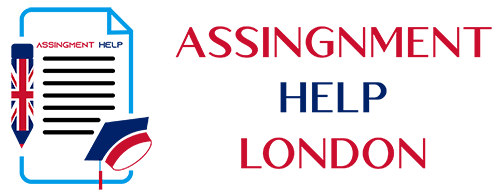How to Start a Written Assignment?

Avoid These Common Mistakes in CIPD Assignment Writing
November 22, 2023It can feel daunting to start if you’re starting to write an assignment or an academic paper, a professional report, or a creative project. They can make you feel like that blank page in front of you is too much to overcome, but it’s about knowing the process, how to get there, and then knowing that you have the clarity and confidence to do that. This blog post will discuss practical steps to begin your assignment correctly and establish the beginning of a successful completion.
Understand the Assignment Brief
Before writing a word, take a reasonable amount of time to understand the assignment prompt or brief carefully. This is your foundation, your starting point, and without this, you can easily get lost. Ask yourself:
- So, what is the purpose of this assignment?
- Where are the main requirements or business objectives?
- Do you have any specific layout or length requirements?
Learn and Gather Information
When you genuinely know what to write, it’s time to research the Information. You need the raw materials the research phase will give you to build a credible argument or narrative. Start with textbooks and academic papers and any source considered worthy to review. Whoever is reading your paper should quickly grasp the structure or theme of the discussion from those notes when you get to the actual writing.
Create a Clear Outline
The skeleton of your assignment is the outline. You should sit down before writing your work and set up a straightforward structure, like the things that will make up your work. You have already done this by using logic to deliver arguments or ideas to someone this time.
For example, if you are writing an essay, your outline might look like this:
- Introduction: Give a tone and decide what you would write about.
- Body Paragraphs: Each paragraph should have a central idea that you support with evidence, examples, or analysis.
- Conclusion: What you’ve just been given to prove reminds readers why your thesis is essential.
Medical concepts, care practices, and research-based evidence are often needed by nursing assignment writers in UK. Using the tasks enables the development of critical thinking, clinical reasoning, and ways of applying knowledge to real-life healthcare settings. The students are enabled to develop skills in completing nursing assignments and coping with the rigors of professional practice.
For this, you will make a Compelling Introduction.
The hardest part of any piece of writing, and yet the most powerful, is the introduction. Again, the introduction to the assignment should be clear to the reader. It must attract the reader’s attention and give the assignment a purpose.
Start with a hook: Some relevant fact, an influential person, or a brilliant example. Introduce your assignment’s thesis statement or your main argument more slowly. It prepares us for what comes later in the body of the text.
Don’t Overthink the First Draft.
It isn’t a draft of perfection. Start writing down everything you want to include and stick to your outline- but you can change your list of items later. It’s about how you get your ideas out there and lay them out logically. It does a lot of writing, and although doing this will help clarify your thoughts and arguments, your words will have little to no room for mistakes when the pen does cease.
Setting Goals: How to Over Procrastinating
I also procrastinate because once I start an assignment, I am overwhelmed. You can break down the task into bite-sized chunks, so you have specific goals to work on when writing. For example, you can finish an introduction in 30 minutes or the first two body paragraphs in 1 hour. It adds up, and the assignment feels manageable. It’s a way to get moving.
Get your work solid and transparent.
How you go about the assignment counts when it comes to getting your assignment to where it needs to be, and it’s and. Speak clearly and without flatter and very low jargon. You want to convey your ideas to the reader so that they can understand them.
Conclusion
Written assignments would be possible. It allows you to make your speech successful, understand the brief thoroughly, do some focused research, which will help you with an outline and a great introduction, and keep refocused while you write. This was as much a guide for doing any other assignment as it was for this one. Therefore, let’s stomp in small pelicans, and you’ll write a robust and well-thought-out piece in no time.


